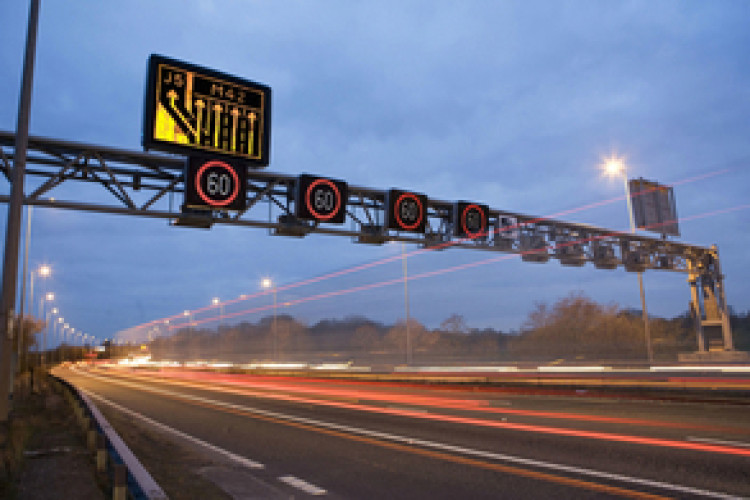The transport select committee says that the Department for Transport (DfT) and National Highways are continuing to remove hard shoulders with only an incomplete safety assessment.
The MPs says that more data should be collected before any more decisions are made on the programme.
The MPs launched their inquiry in response to concerns about the increasing number of fatalities on smart motorways and criticism from coroners about the risks that arise when the hard shoulder is used as an extra lane. One coroner referred National Highways (formerly known as Highways England) to the Crown Prosecution Service to assess the grounds for bringing corporate manslaughter charges against the company. Meanwhile, South Yorkshire Police is investigating whether to bring charges against the company in connection with two cases on the M1.
From 2017 to 2019, the number of miles of motorway without a hard shoulder increased from 172 miles to 204 miles. Deaths on these motorways increased from five in 2017 to 15 in 2019.
The MP’s report recommends that DfT and National Highways pause the rollout of all-lane running motorways until five-years of safety data is available for the remaining 112 miles of all-lane running motorway introduced before 2020.
While this might suggest work drying up for National Highway’s construction suppliers, that it no necessarily the case; the MPs also say that emergency refuge areas should be retrofitted to existing all-lane running motorways to make them no more than a mile apart, decreasing to every 0.75 miles where physically possible.
A big part of the problem with smart motorways is that the smart bit – the stranded vehicle detection technology and rapid response rescue service – was never installed in most places.
.png)
Stopped vehicle detection (SVD) will not be rolled out across all all-lane running motorways until September 2022, some six years after it was promised.
Mike Wilson, chief highways engineer at National Highways told a previous transport committee inquiry in May 2016 that the company was confident that the technology worked and that “it will be part of the standard rollout of smart motorways going forward”.
It wasn’t.
By 2019, only 18% of all-running motorways had SVD installed. In October 2019, Jim O’Sullivan, the then chief executive of Highways England, told the committee that the company was still developing plans for the rollout of SVD due to challenges of retrofitting the technology to existing schemes.
The MPs remain concerned about whether the SVD technology works properly. The committee says that Office of Rail & Road, which regulates National Highways, should conduct its own independent evaluation of the effectiveness and operation of stopped vehicle technology
The report says: “The design of our motorways and strategic roads necessarily entails balancing competing priorities. However, successive Administrations, together with the Department and National Highways’ predecessor, Highways England, underestimated the scale of safety measures needed effectively and reliably to mitigate the risks associated with the permanent removal of the hard shoulder on all-lane running motorways. The Department and Highways England failed to deliver safety improvements to all-lane running motorways in a timely fashion, despite having promised previous transport committees that such improvements would be prioritised. Moreover, the communication of this radical change in the design of our motorways has been woeful. Six years after their introduction, many people do not understand what all-lane running motorways are and what to do if they breakdown in a live lane.”
Got a story? Email news@theconstructionindex.co.uk



